PARIS — Decrying an “act of war,” French President François Hollande warned on Saturday of a possible major escalation in the fight against the Islamic State after a bloody siege across Paris that killed 129 people, wounded 352 more and sharply raised the terror threat confronting Europe.
As if in response to Hollande’s address, the Islamic State moments later asserted responsibility for the worst attacks in France since World War II and among of the most deadly terrorist strikes on Western soil since Sept. 11, 2001.
Friday’s carnage also further reinforced worries of expanded Islamic State reach through recruitment and propaganda, and apparent evolving tactics among its fighters that include commando-style raids against its foes in the West and elsewhere.
At least one American – a university student on a semester abroad – was among the dead.
As part of a rapid and widening developments, police in neighboring Belgium arrested several suspects in connection with the Paris attacks, the country’s justice minister, Koen Geens, told VRT television after a raid in a Brussels district that includes a large immigrant community from Morocco and Turkey.
In France, meanwhile, one of the attackers has been identified as a French national who was known to authorities, according to two French officials familiar with the case.
And in Greece, authorities said a Syrian passport found at a Paris attack site was carried by a man who passed through an Aegean island last month.
Left behind in Paris were the latest scars, said Pope Francis, from the “piecemeal Third World War.” One survivor described the gunmen coldly picking off hostages in a packed concert hall as if “we were birds.”
More than 350 people – including some Americans – were wounded, including about 100 with serious injuries, officials said. The Paris prosecutor’s office set the latest death toll at 129.
It includes Nohemi Gonzalez, 23, a student at California State University, Long Beach, said a statement from the school. Gonzalez, of El Monte, California, was in Paris studying design during a semester abroad.
Initial reports of a higher overall death count were revised down by authorities after they received a full accounting from the various attack sites – where mourners left flowers, candles and notes of sympathy beside police tape and barricades.
All seven attackers died: six in suicide blasts while the seventh – also wearing explosives – was shot by police, according to a senior European intelligence official.
French officials have managed to recover fingerprints from at least four of the men, with French, German and other European law enforcement agencies seeking possible matches.
Other clues were followed. A discarded Syrian passport was found at the site of the stadium attack. The name on the passport, whose owner was born in Idlib, Syria, was passed on to security services, but it remained unclear whether it belonged to one of the assailants, according to two senior European security officials.
On Saturday, Greece’s civil protection agency confirmed that the holder of the passport had entered that country, most likely from Turkey, on the island of Leros on Oct. 3. A copy of the person’s fingerprint was sent to French authorities to check against any of the dead assailants.
Possible links to the unprecedented waves of refugees crossing into Europe could open fresh debate over potential security risks as Europe struggles with the exodus from places such as war-ravaged Syria and Iraq, where the Islamic State holds territory.
LANDMARKS NOW GHOST TOWNS
“Confronted with war, the country must make the appropriate decision,” Hollande said, suggesting a stronger French response against the Islamic State.
In Libya, a U.S. airstrike was believed to have killed the leader of the Islamic State’s branch in the North African nation, a U.S. official said after a mission that was apparently set in motion before the Paris massacres.
Hollande called an emergency Cabinet meeting amid dramatically stepped up security after the multipronged attack on seven sites – including a soccer match, a rock concert and crowds at bars and restaurants at the beginning of the weekend.
France declared three days of national mourning and, for security reasons, banned public gatherings through Thursday.
Paris landmarks became ghost towns. The Eiffel Tower, the Louvre, Versailles and Paris Disneyland were shut down for the day. So were government buildings, schools, libraries, food markets, swimming pools and gymnasiums.
A timeline of the attacks indicated the siege began after explosions erupted at the Stade de France – the city’s main sports stadium – at 9:20 p.m. as Hollande and other dignitaries were watching a match between France and Germany.
Almost at the same time, gunfire went off 4.2 miles south of the stadium, at the Le Carillon bar, and then at a Cambodian restaurant across the street, in the city’s 10th arrondissement. At 9:32 p.m., shots flew out at a pizzeria in the same district, followed by further attacks on two other restaurants – the Belle Equipe and the Brasserie Le Comptoir Voltaire, according to French BFM TV.
PRETENDING TO BE DEAD
Then at 9:49 p.m., the attack at the 19th-century Bataclan, one of the city’s most famous music venues, unfolded. Hundreds of people had gathered for a show by an American band, Eagles of Death Metal. Four assailants opened fire inside the concert hall. Inside, hidden concertgoers sent out panicked tweets and Facebook messages begging for a police rescue.
A 26-year old employee at the Bataclan – who asked that only his first name and initial, Louis H., be used – said he was attending the concert with his mother. They were sitting in the center of hall when they heard loud sounds he later realized were gunshots, followed shouting and a spurt of confusion. The band stopped playing and the lights went on.
He said he and his mother pretended to be dead, lying on the floor for 10 minutes as they heard more shots and shouts. The gunmen, he said, walked close to him, but then walked past. Later, someone shouted “they’re gone,” and he and his mother made a dash for the exit, passing dead bodies and wounded concertgoers.
He said he kept his eyes diverted from the shooters. “If I looked at them, I would die,” he recalled.
“A bloodbath,” Julien Pearce told CNN. The attackers were shooting “as if we were birds,” he added.
The Islamic State’s claim of responsibility – issued on its internal social media site – said the targets were “precisely chosen targets in the center of the capital of France” and specifically mentioned Hollande’s appearance at the soccer match.
“Let France and all nations following its path know that they will continue to be at the top of the target list of the Islamic State,” it said.
In the past weeks, the Islamic State has claimed responsibility for strikes including twin bombings in Beirut on Thursday that claimed at least 41 lives, and the Oct. 31 crash of a Russian passenger plane in Egypt that killed all 224 aboard. Authorities, however, have not yet determined a cause for the crash.
The Paris bloodshed also followed potential blows to the Islamic State in its strongholds in Iraq and Syria.
BEYOND FRENCH BORDERS
Earlier Friday, Kurdish fighters backed by U.S.-led warplanes cut off a key supply line for the Islamic State in northern Iraq, and the Pentagon said a drone strike targeted an infamous Islamic State executioner, the British-raised Mohammed Emwazi, also known as “Jihadi John.” A U.S. military spokesman said the officials were “reasonably certain” that Emwazi was killed.
Meanwhile, details emerging after the Paris attack also suggested the planning went beyond French borders. At least some of the attackers were using a Volkswagen with Belgian license plates. And police in Bavaria arrested a man a few days ago who German authorities believe could be linked to the Paris attacks.
Bavarian Interior Minister Joachim Hermann told local broadcaster Bayerischer Rundfunk that “several weapons and also Kalashnikovs” had been found in the car of a man arrested on the highway from Salzburg to Munich.
RIPPLES ACROSS EUROPE, BEYOND
“The investigations have shown that the driver apparently was on the way to France,” Hermann said. “Whether there is a direct link with the terror attacks has to be investigated.”
The Bavarian police did not immediately provide further details, but, according to the Bayerischer Rundfunk, the man arrested was a 51 year-old from Montenegro. In addition to several firearms, police had also found explosives in his car.
The fallout quickly rippled across Europe and beyond.
Border checks were imposed on European frontiers that are normally wide open, and European leaders including German Chancellor Angela Merkel pledged support to France.
A terminal at Britain’s Gatwick airport was evacuated after a possible firearm was found amid heightened surveillance. Iran’s president, Hassan Rouhani, canceled a trip to Italy and France in the wake of the attacks.
Extra security measures took effect across major American cities. The U.S. State Department also was working to put together a full list of Americans injured in the attacks, said deputy spokesman Mark Toner.
“This is Europe now,” said Marina Alcon of Spain, after being herded into a newly created line for passport checks at Charles de Gaulle Airport outside Paris.
Copy the Story LinkSend questions/comments to the editors.

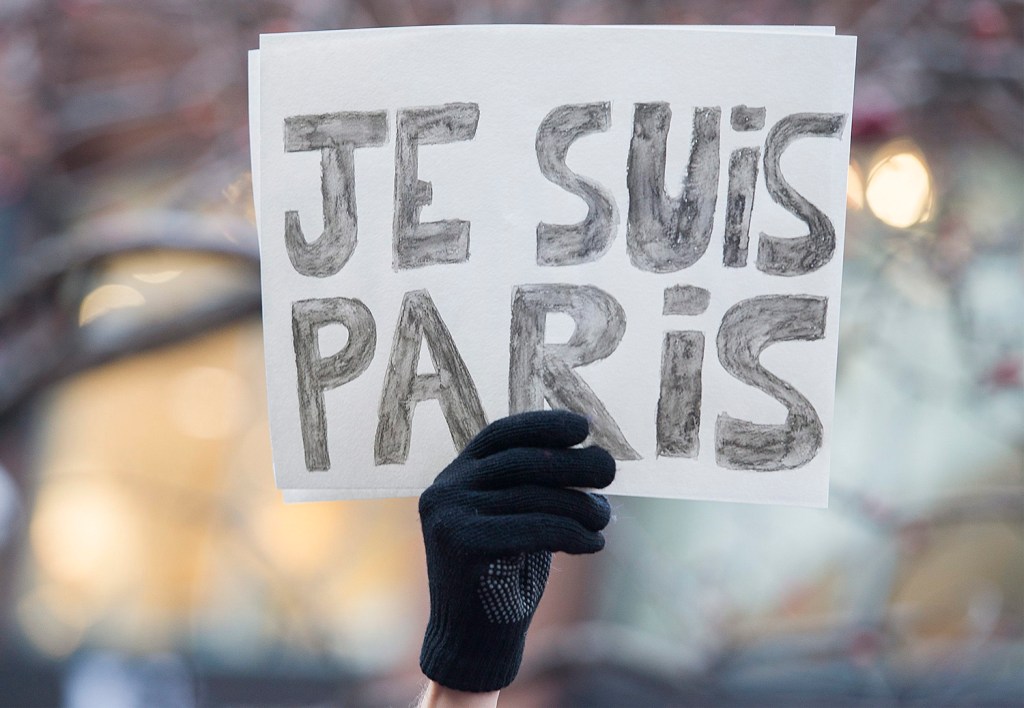
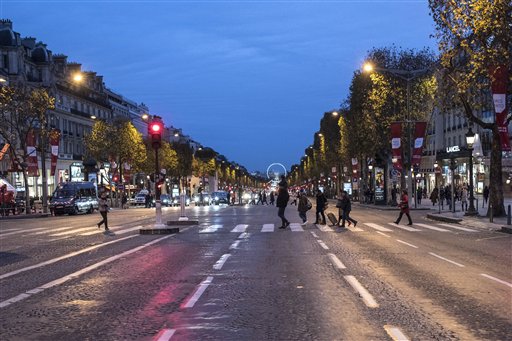
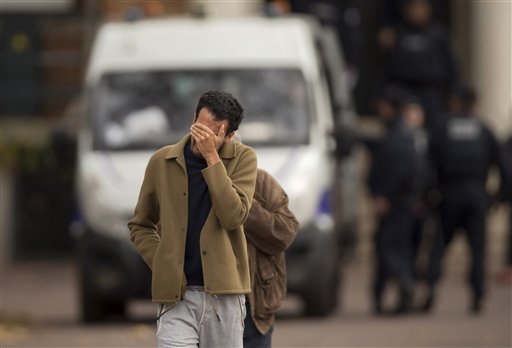
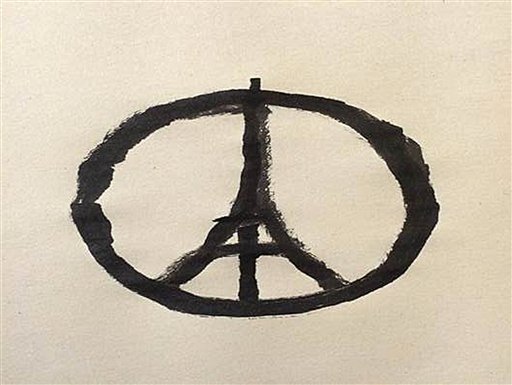
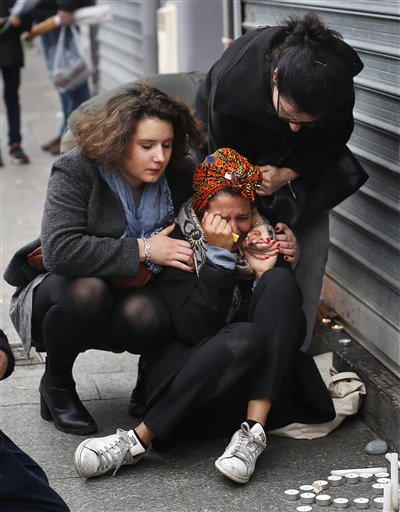
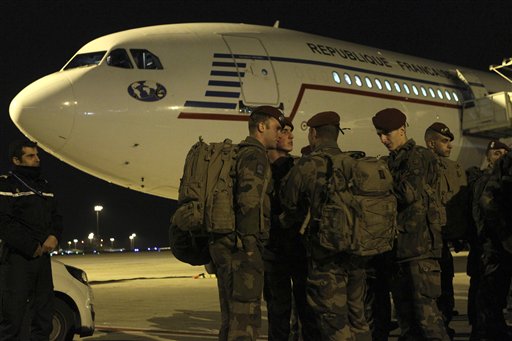
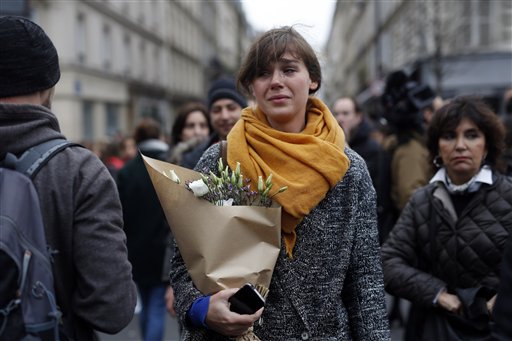
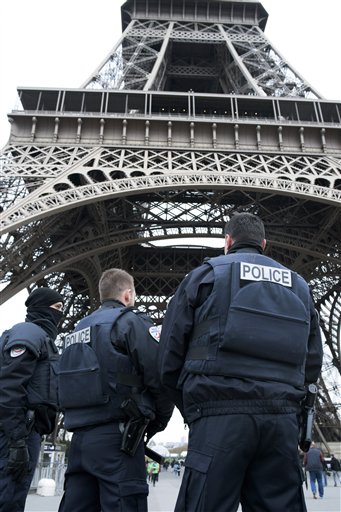
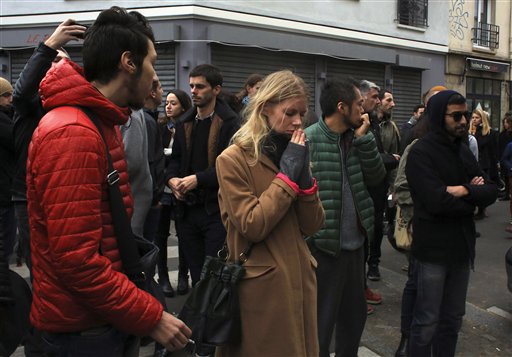
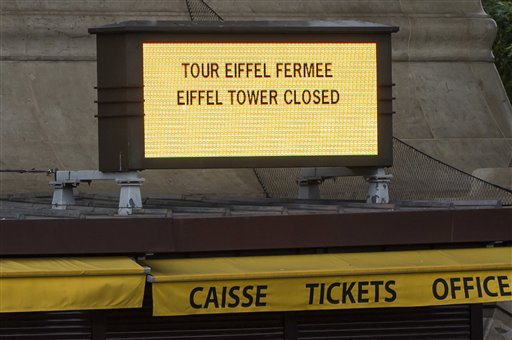
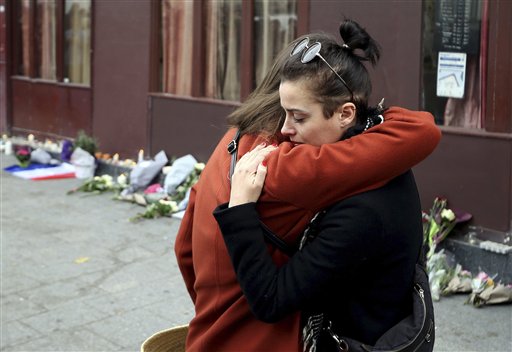
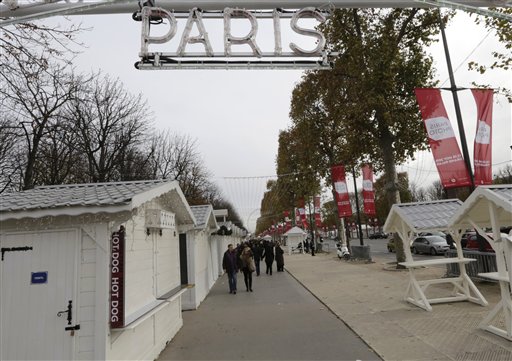
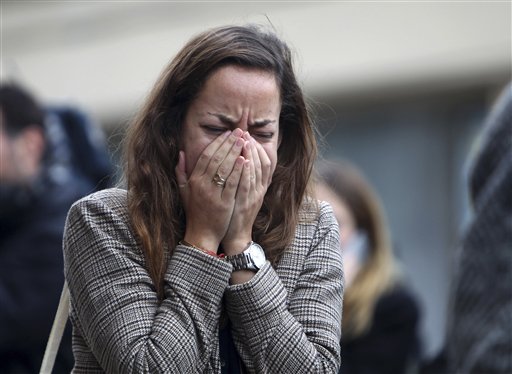
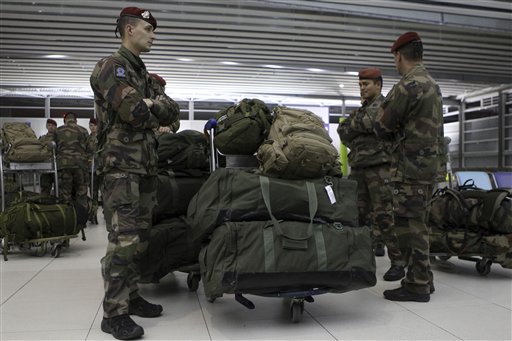
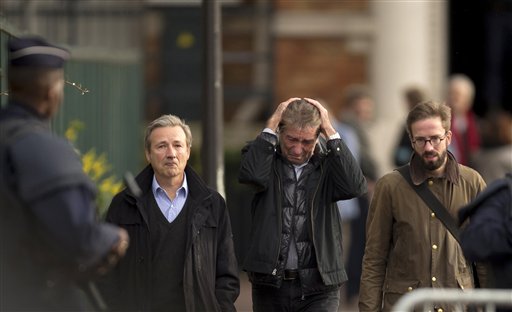
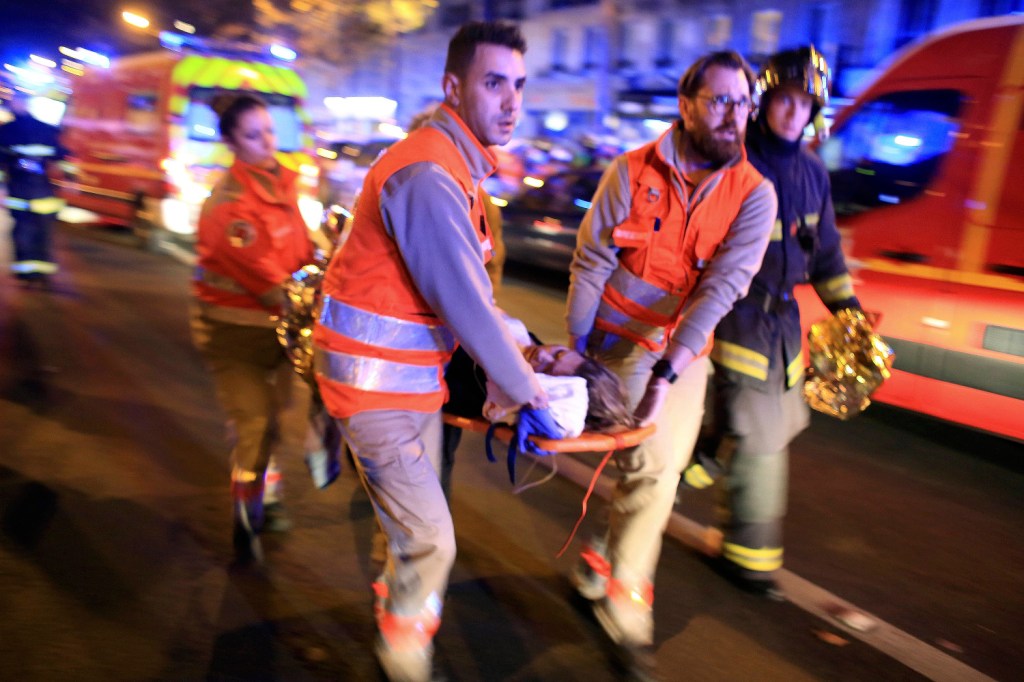
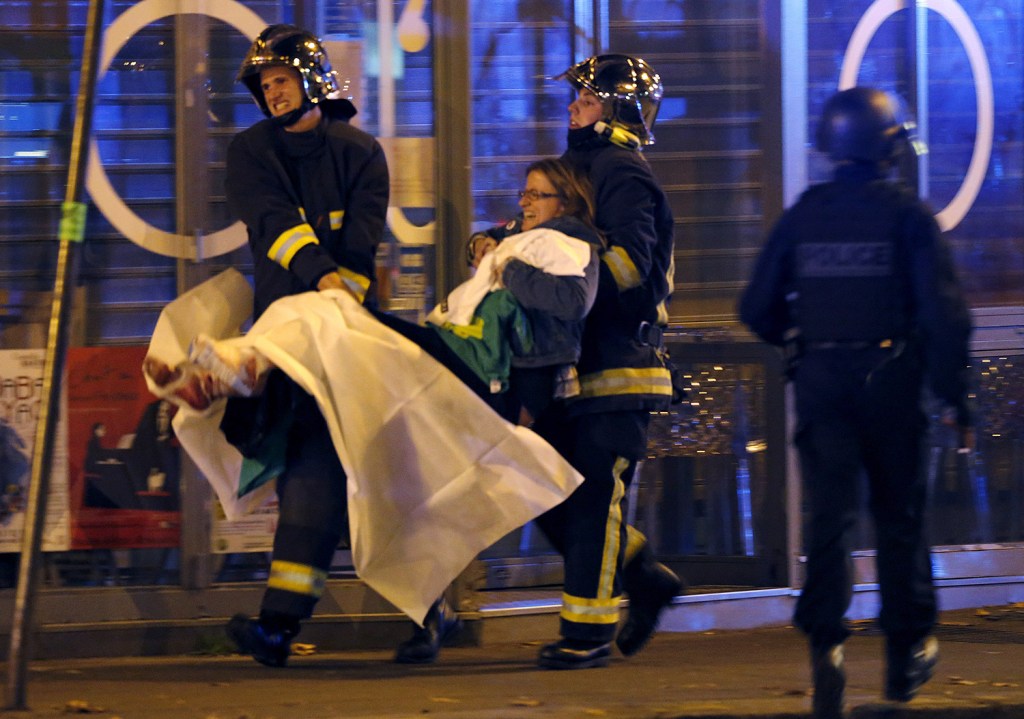
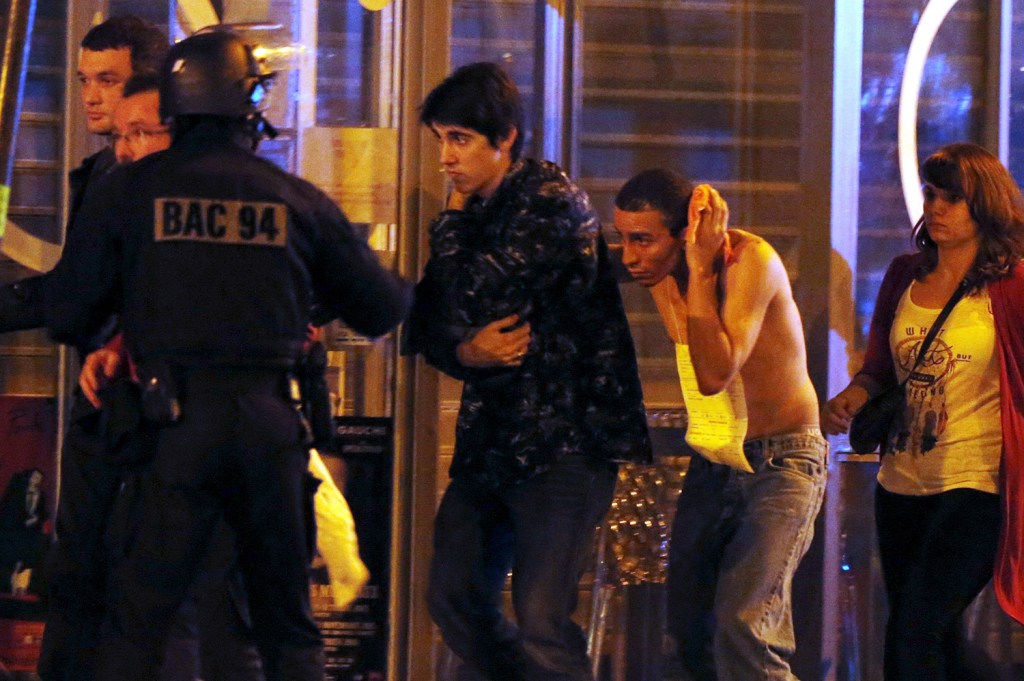
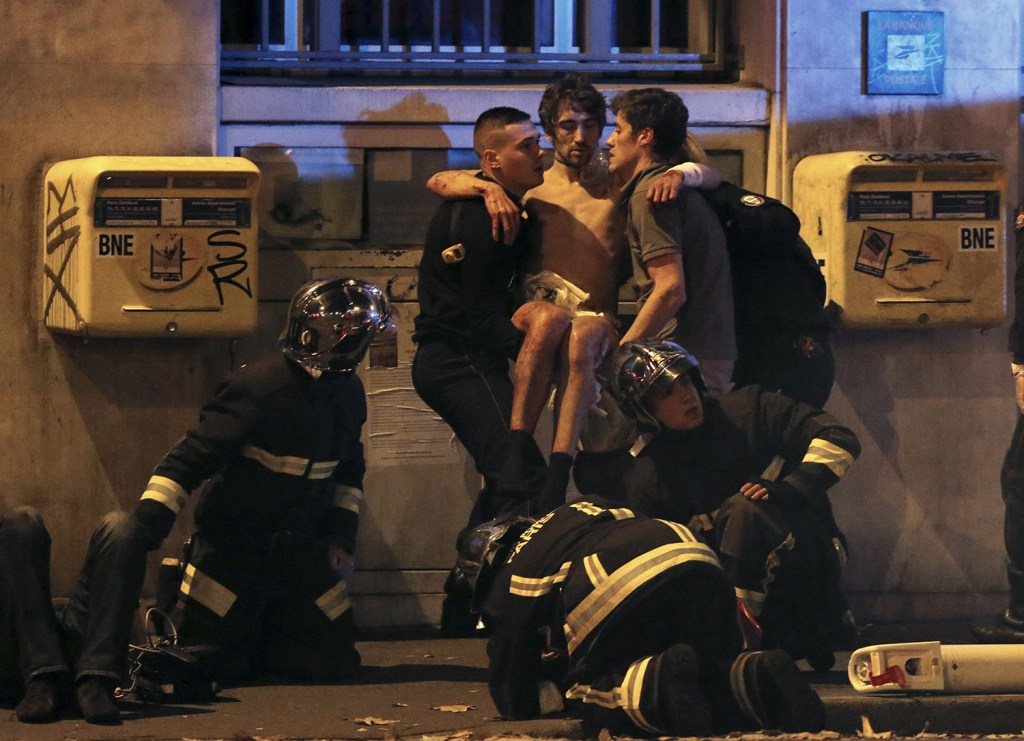
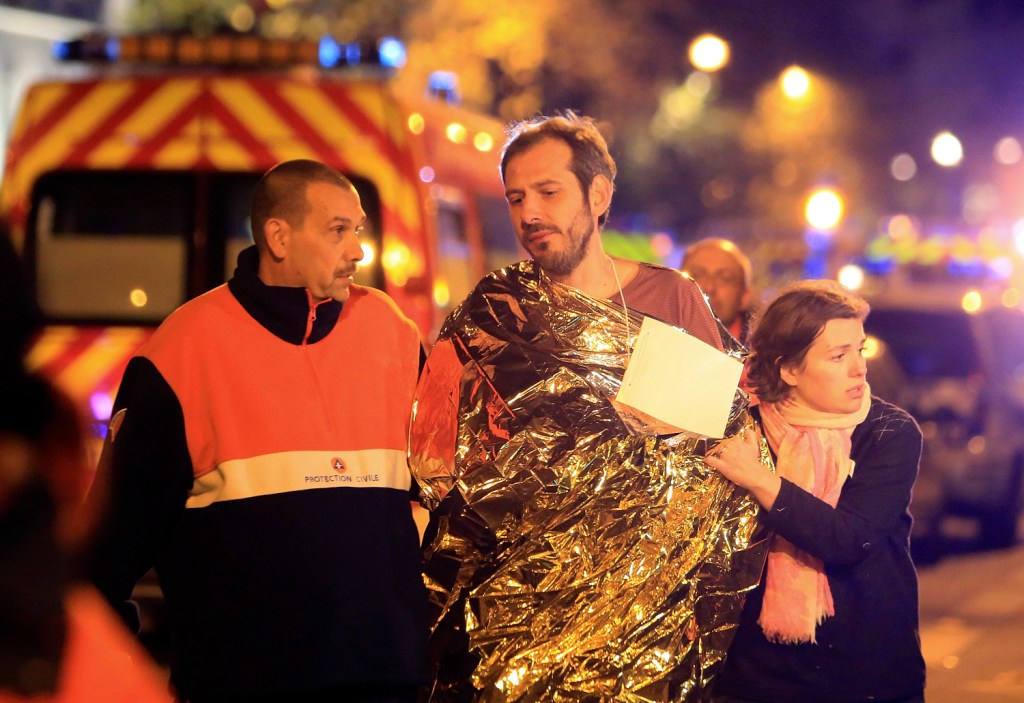
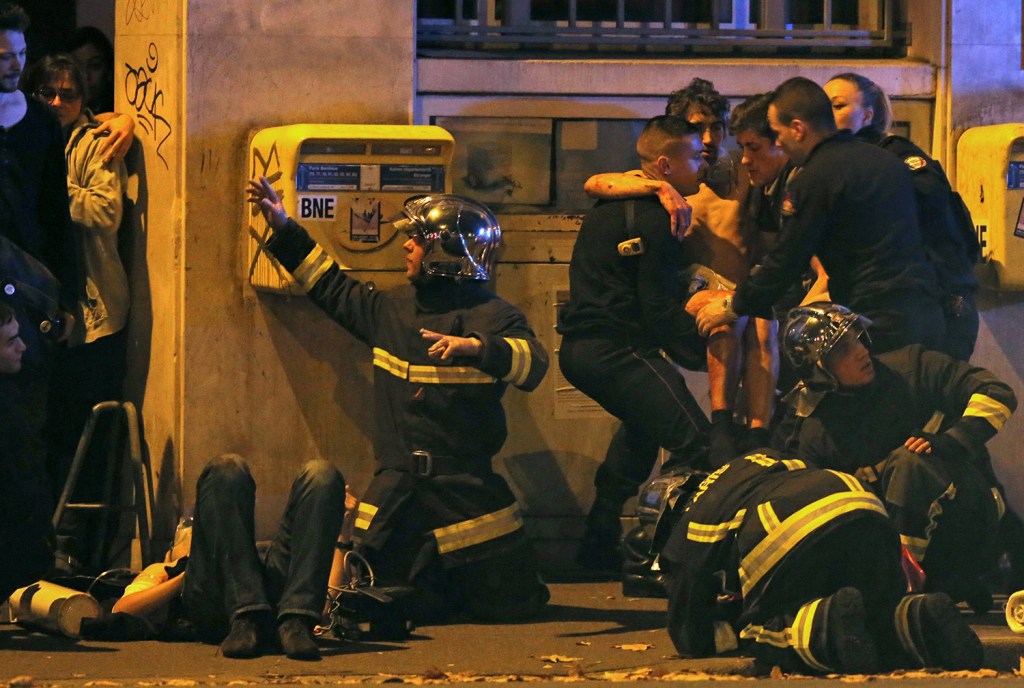
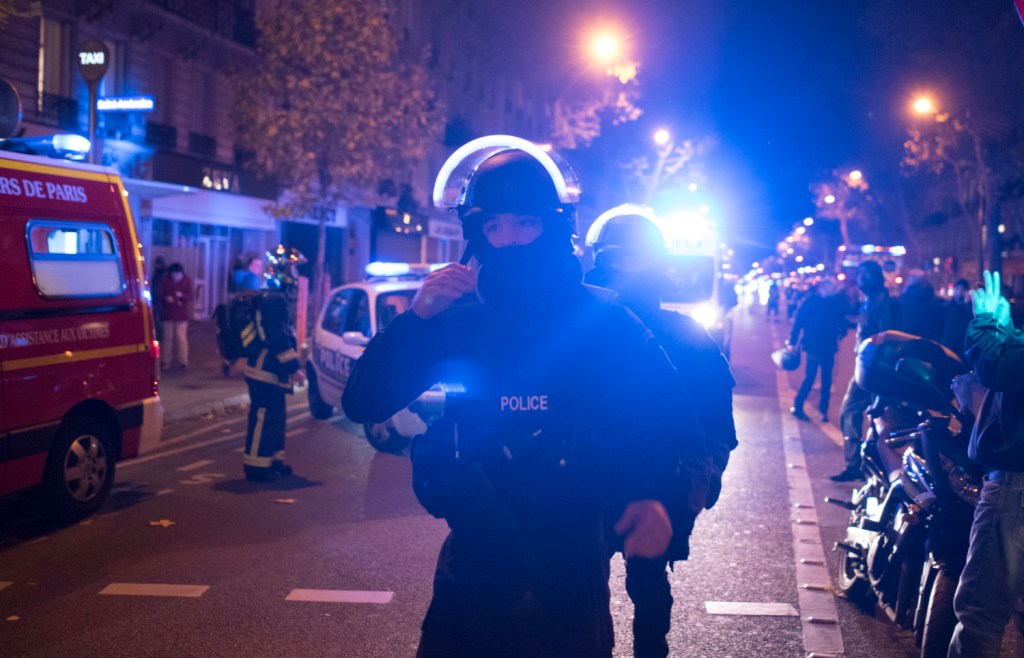
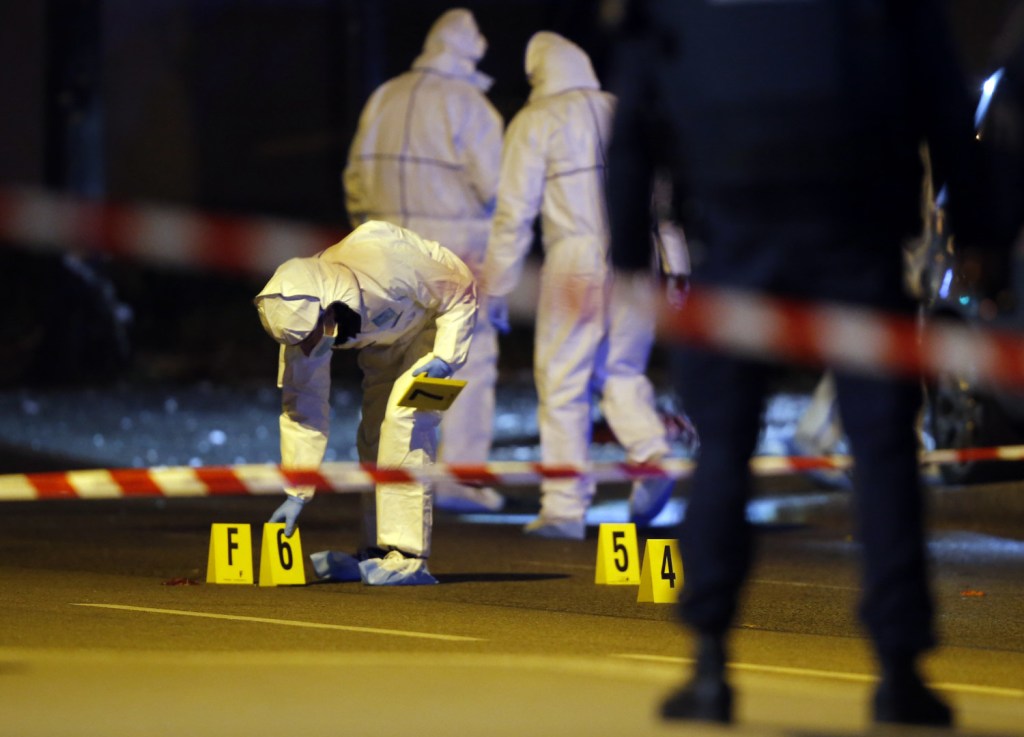
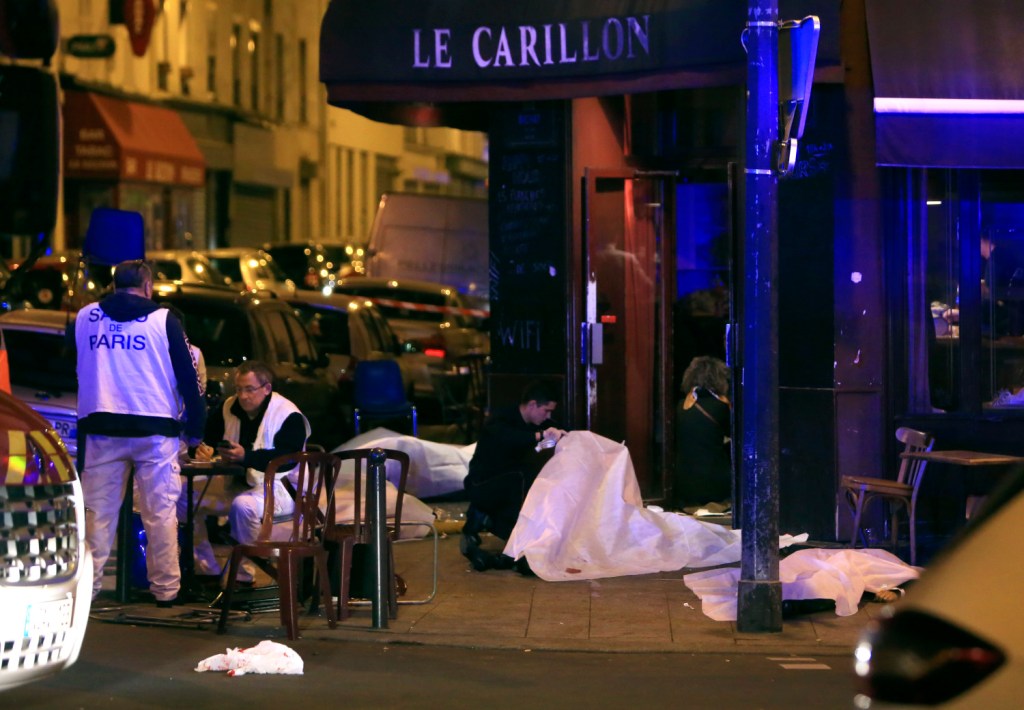
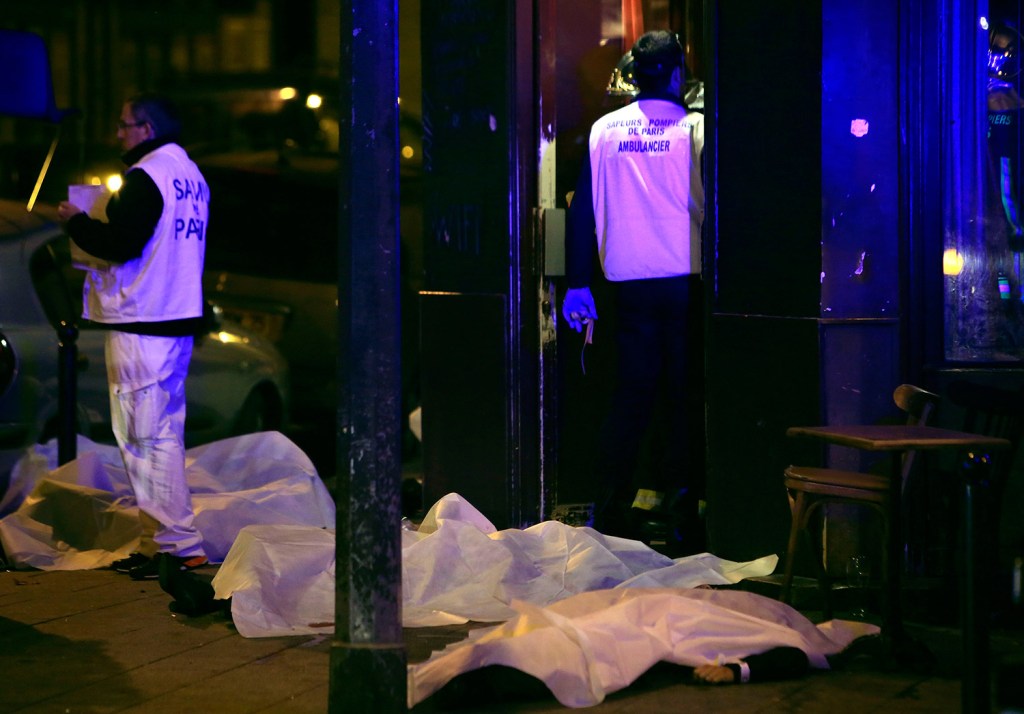
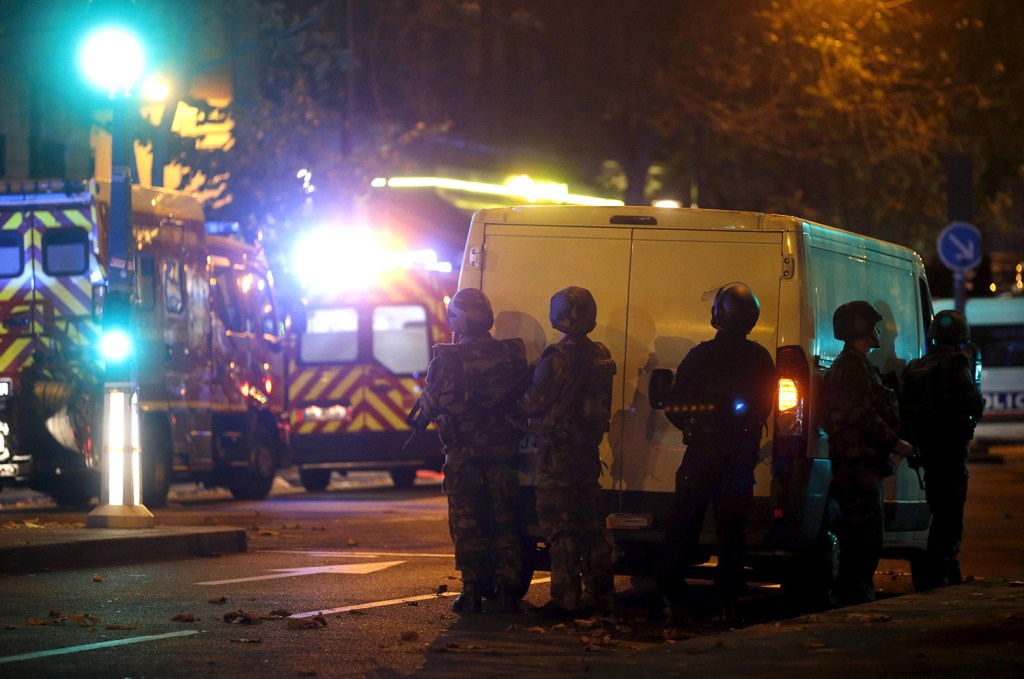
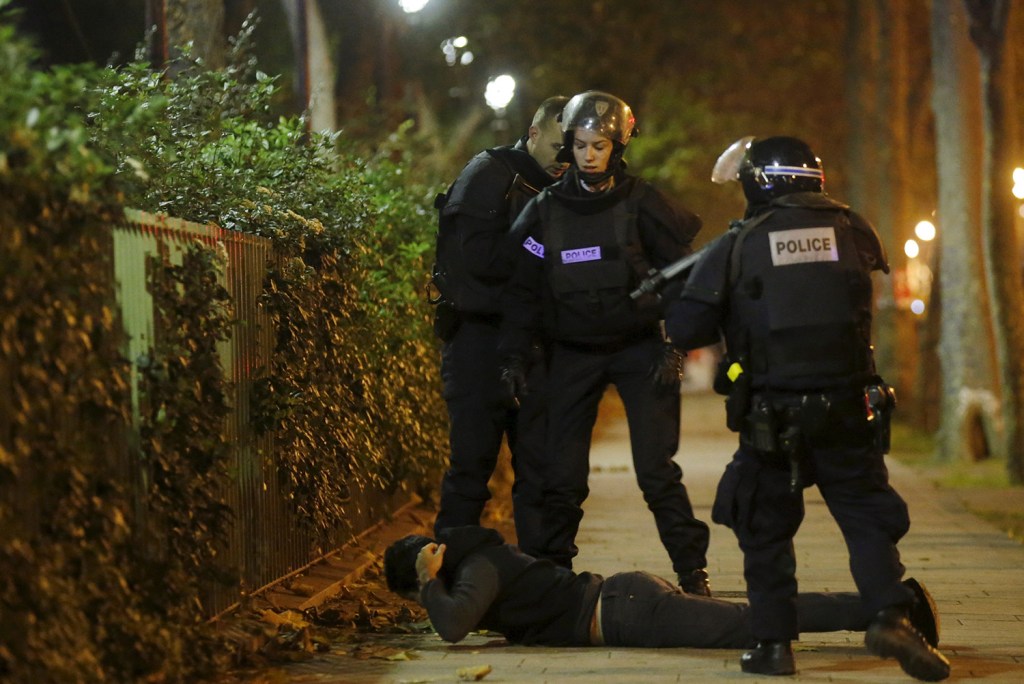
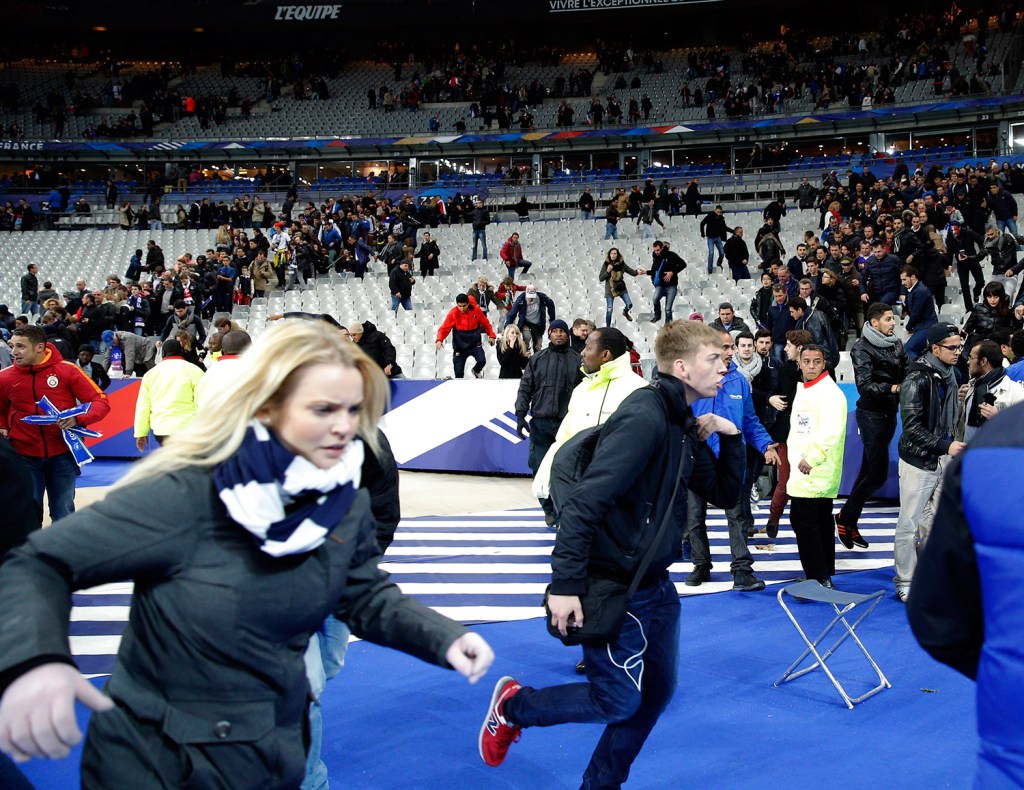
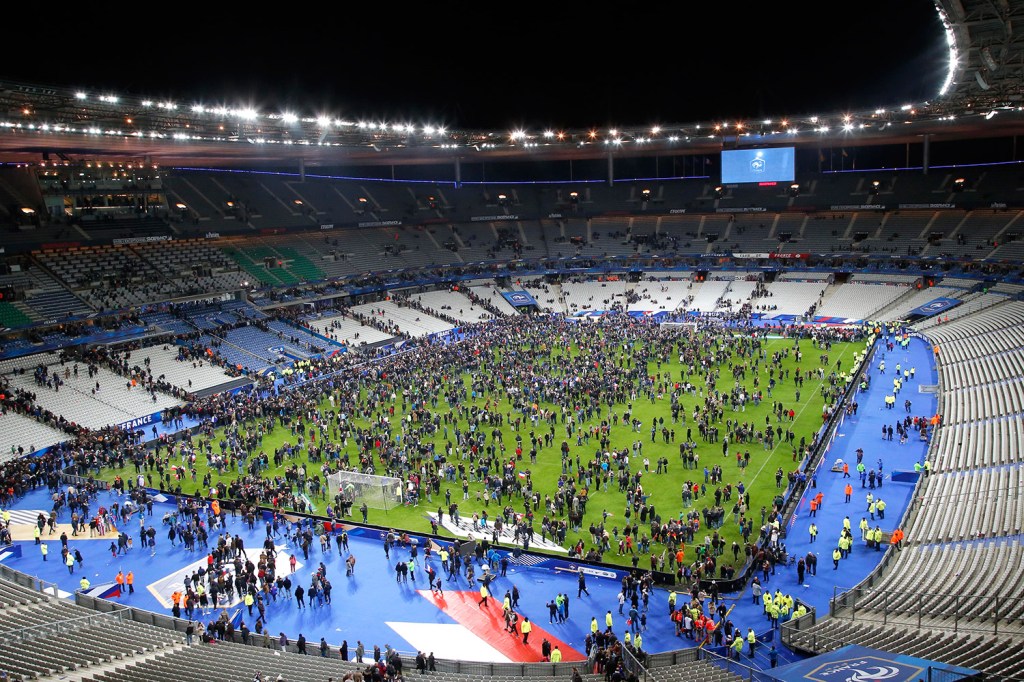
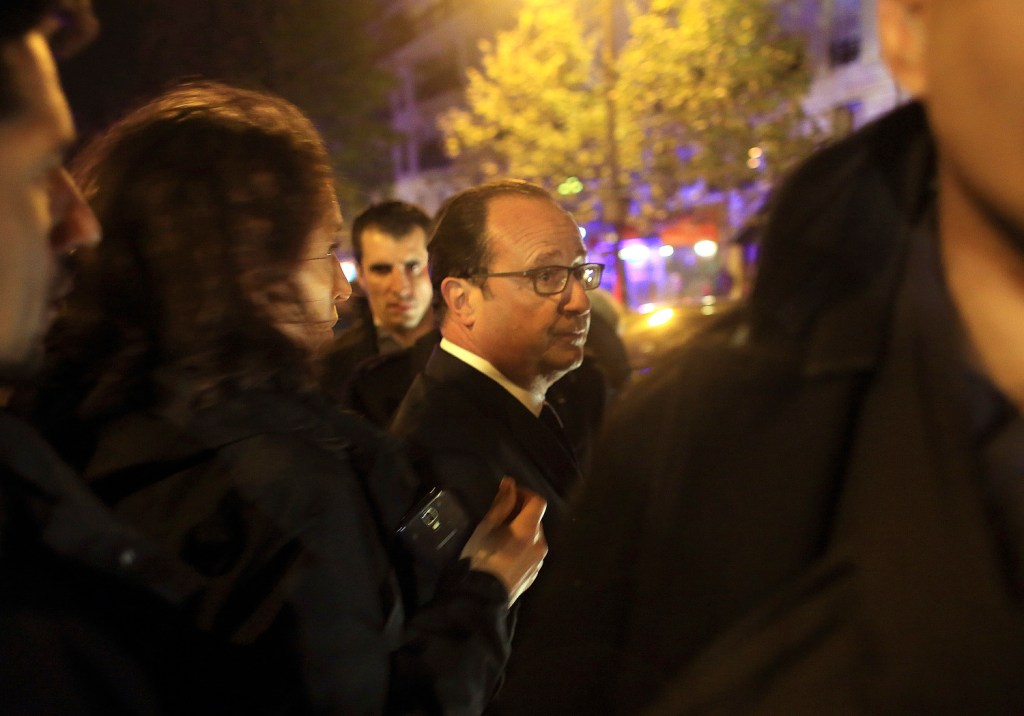
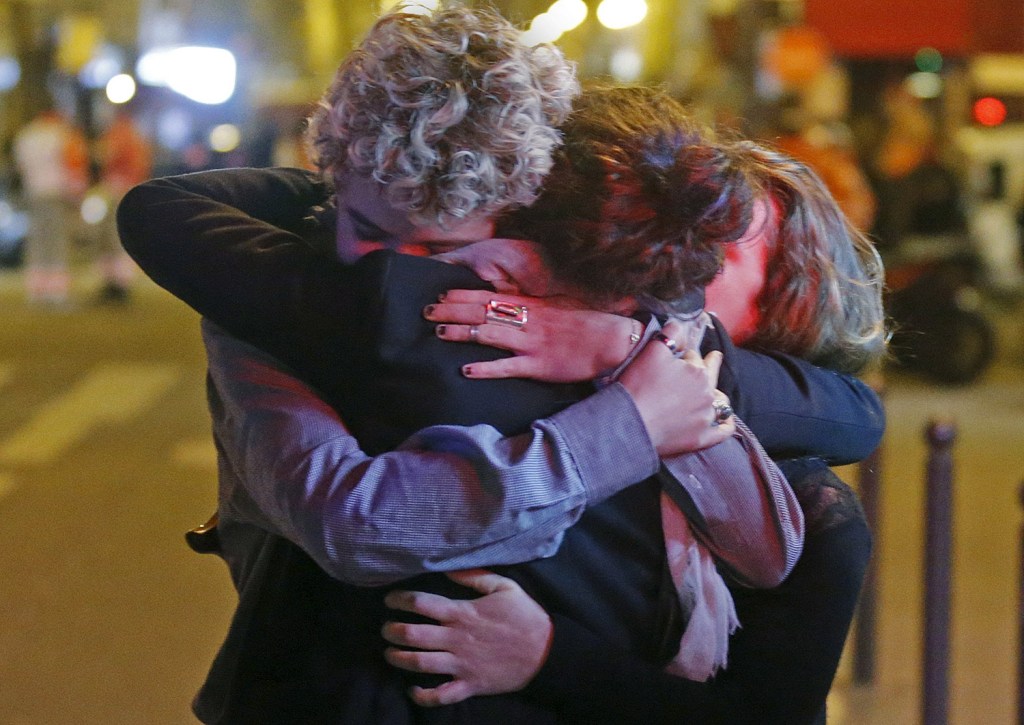


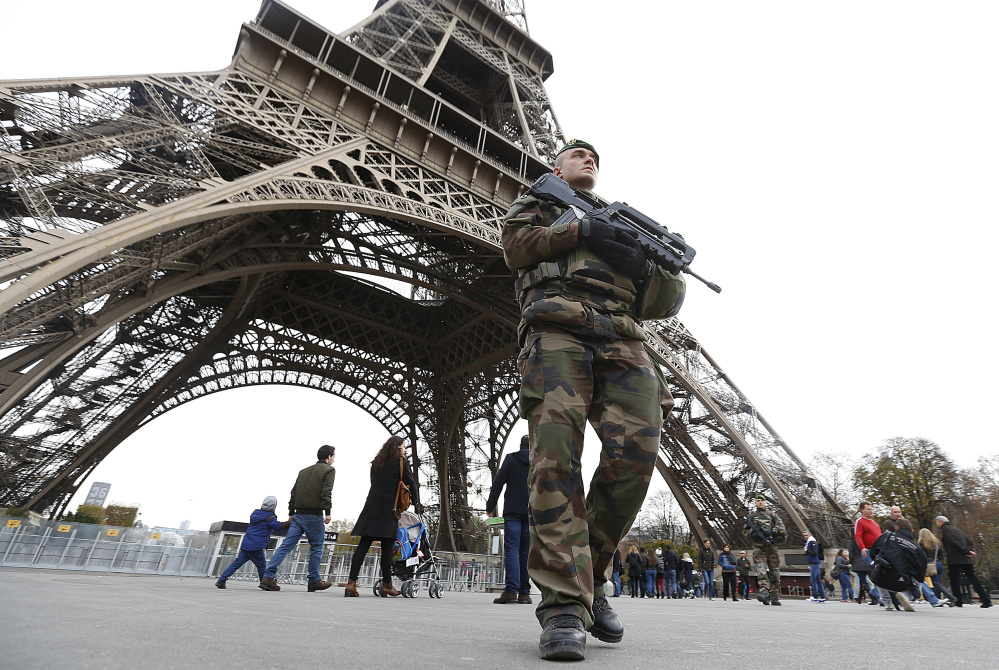
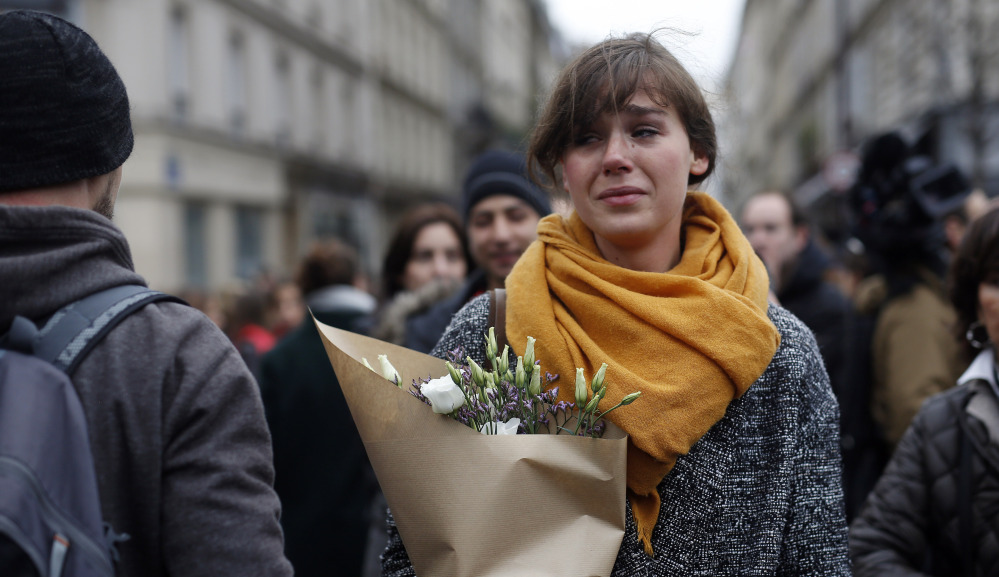

Success. Please wait for the page to reload. If the page does not reload within 5 seconds, please refresh the page.
Enter your email and password to access comments.
Hi, to comment on stories you must . This profile is in addition to your subscription and website login.
Already have a commenting profile? .
Invalid username/password.
Please check your email to confirm and complete your registration.
Only subscribers are eligible to post comments. Please subscribe or login first for digital access. Here’s why.
Use the form below to reset your password. When you've submitted your account email, we will send an email with a reset code.